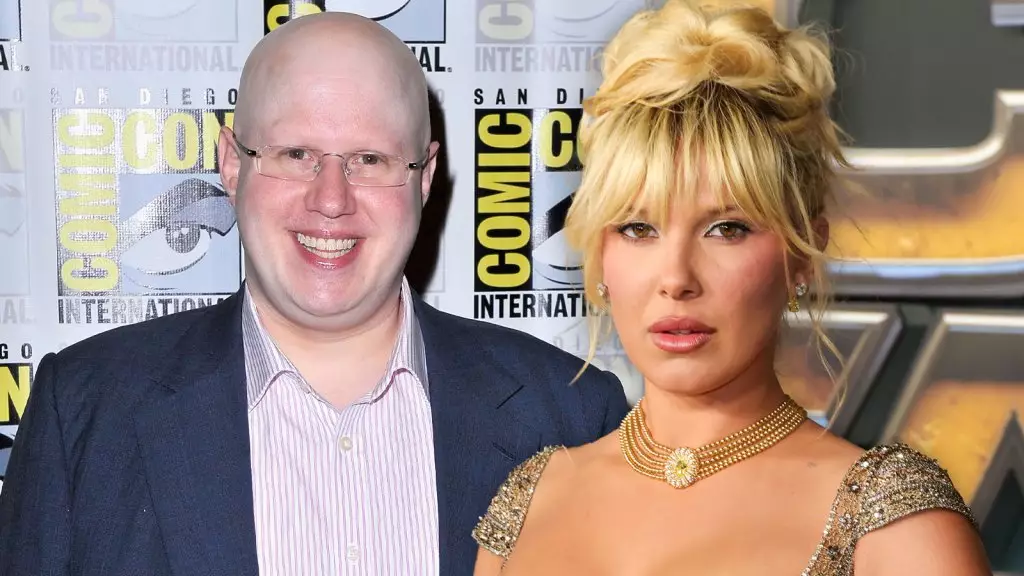In our current era of social media and instant criticism, the treatment of young celebrities is both alarming and indicative of a deeper societal flaw. Recent events involving British actor and comedian Matt Lucas and “Stranger Things” star Millie Bobby Brown serve as an uneasy reminder of the pervasive culture that permits public figures to be dissected as if they are mere objects of entertainment, rather than human beings with emotions. Lucas’ comments, which he later clarified as a misguided joke referencing a character from his show, sparked an outrage that highlights not just the individual incident but the systemic issues at play when it comes to the scrutiny of young women in the spotlight.
Apologies Mean Little When the Damage is Done
Lucas’ social media apology, while gracious in intent, underscores the inadequacy of simply acknowledging harm after it has been inflicted. Brown’s fervent response to the relentless criticism of her appearance illustrates a broader issue: our collective inability to evolve with those we idolize. In her viral Instagram video, she forcefully asserts that the focus on her looks is not only damaging but amounts to bullying, a sentiment that feels painfully accurate when dissected against the backdrop of modern celebrity culture. What does it say about us when we feel entitled to critique the physical appearance of someone simply because they are on our screens?
Feminism Muddied by Inconsistency
In a world that often purports to celebrate women, it’s disheartening to see mainstream media contribute to the harassment of young women navigating the treacherous waters of fame. Brown’s observations about the nature of articles penned about her, often by women themselves, cast a shadow on the narrative of female empowerment that we are supposed to champion. The very individuals who should be nurturing this young talent instead choose the path of sensationalism, reaping rewards at her expense. Are we, as a society, comfortable sacrificing our values in exchange for a fleeting moment of clickbait?
The Toll on Mental Health
The psychological ramifications of relentless public scrutiny cannot be overstated. As Millie poignantly stated, the expectation that she should remain the same person she was when “Stranger Things” first debuted disregards her humanity. Adolescents grow, evolve, and mature physically and emotionally, and it is a travesty that any young woman should feel pressured to conform to a stagnant image that caters not to her growth but to an audience’s unrelenting fixation. This dissonance often leads to damaging consequences, particularly for those still in their formative years, as they grapple with self-identity against a backdrop of uncompromising public expectation.
Addressing a Flawed Culture
Ultimately, the Lucas-Brown exchange is not merely about one comedian’s comments; it represents a broader discourse on how we perceive youth and beauty in the world of entertainment. If we are to genuinely support young women, we must engage in a culture that values empathy and understanding over ridicule and fascination. The responsibility falls not only on the media but on all of us as consumers of this content. We must question our role in perpetuating a cycle of negativity that relentlessly devours the very individuals we claim to admire. It’s time to demand better, not just for Millie but for all young women navigating the labyrinth of public perception.

